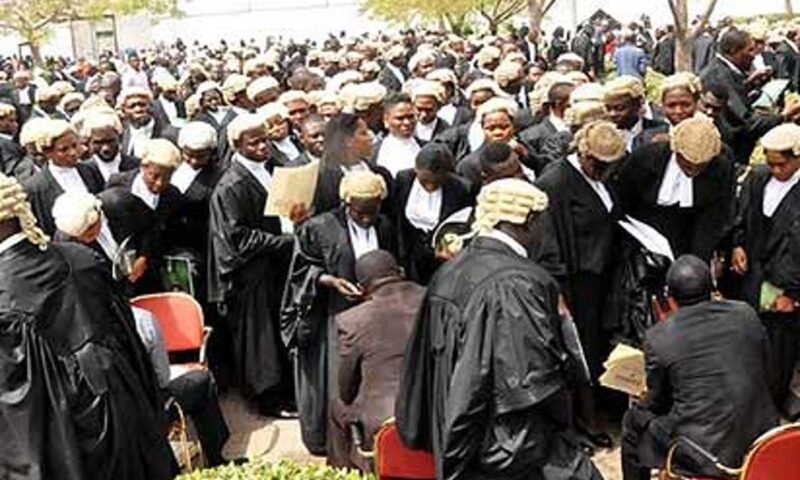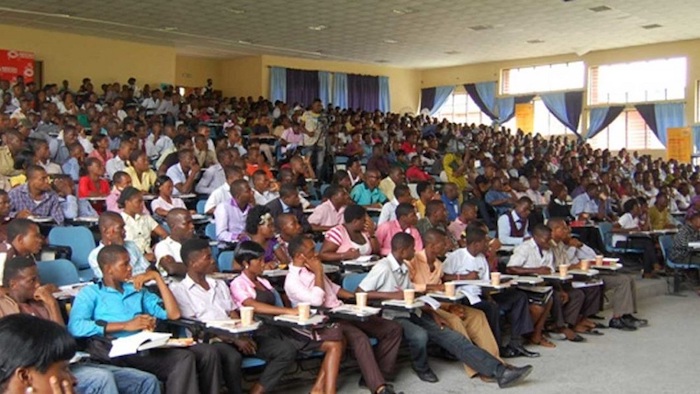By Nasir Dambatta
“There are three things in the world that deserve no mercy: hypocrisy, fraud, and tyranny” –Frederick William Robertson.
Digital loan apps are assuming a perennial issue in today’s Nigeria and increasingly worrisome to monetary policy managers at the Central Bank of Nigeria, CBN, and other relevant agencies, notably, the Economic and Financial Crimes Commission, EFCC, and the Independent Corrupt Practices and other related Offences Commission, ICPC. It is no longer news that unresolved privacy challenges have been common with digital loan companies operating in today’s Nigeria. What is news, however, is the fresh effort to find a holistic solution to this variant of cybercrime which has dire consequences to the stability of Nigeria’s financial system.
The National Information Technology Development Agency (NITDA) said recently that it has received 40 petitions from Nigerians regarding companies that abuse user data. Reports also revealed that the agency has commenced action on these complaints. In August, NITDA imposed a N10 million (approximately $24,000) fine on Soko Lending Company, owners of Sokoloan – an app that emerged in September 2018 with over one million downloads on Google Play Store. Though a few days ago, the App appeared to have been taken down, it exemplifies the economic dilemma Nigerians have been suffering in the hands of Fintech Sharks.
As usual, the CBN swung into action and to make the apex bank’s efforts both effective and efficient, it joined hands with relevant institutions to form a formidable squad of sorts.
The National Data Protection Bureau (NDPB) was the first to disclose that it is working with the apex bank, ICPC, EFCC, the Nigerian Communications Commission (NCC), among others, to investigate the activities of online financial loan companies. Across all sectors are vulnerable Nigerians being defrauded by means of Apps managed by shadowy investors majority of whom are never licensed by the CBN.
What does the investigation initiated by CBN and other relevant institutions seek to achieve? The investigation is aimed at finding out how they are operating, the variant of technology they are using and devise a holistic means of tackling this industry of Fintech Sharks.
National Commissioner and the Chief Executive Officer of the NDPB, Mr. Vincent Olatunji, said this much while fielding questions from newsmen at a forum organised by the bureau in partnership with the NCC recently in Abuja. He also complained bitterly that a lot of the online loan Apps operators don’t have forwarding addresses, thereby making it difficult for the agency to track them.
He, however, pointed out: “For every crime committed online, there is somebody behind it and that fellow has a digital identity. We now have a robust digital database under NIMC” .
Beyond the NIMC database, what else has this agency that can be helpful to the fight? Olatunji disclosed that the NDPB has engaged over 50 public and private institutions for protecting the privacy and safety of data of Nigerians. Not only that, it was reported that the agency was hoping to create over 500,000 jobs in the data protection ecosystem, which would go a long way in reducing the high rate of unemployment in the country.
The aim of this war on Fintech Sharks is to ensure that the laws are aligned with the global trend, especially with Data Protection Bill that has been sent to the Federal Executive Council (FEC) for deliberation. Expectedly, the bill would be sent to the National Assembly as an Executive Bill, if it eventually gets the FEC approval.
The goal is simple: to ensure that the Bill is signed into law before the end of President Muhammadu Buhari’s era. In essence, data protection and safety are connected to the nation’s reputation.
Another report captured the essence of the vicious war on digital loans fraud thus: “We cannot over-emphasise the importance of compliance due to the vulnerabilities in the digital space. We are currently carrying out full-scale investigations of alleged violations in the telecom, banking and gaming sectors and we can report that appropriate remedial actions have been initiated.”
The CBN and the other relevant institutions are reportedly working with the Police Investigation Unit for swift action in some of the identified cases involving shadowy data controllers.
The bottomline of the latest action involving the CBN and its partners in government agencies dealing strictly with financial crimes, is that Fintech Sharks can eventually be taken to court and penalised. This will be the major proof that no digital loan outfit can test the will of government again.
What made the CBN management disturbed was the latest surge in loan apps, with virtually a new one popping up on YouTube adverts every other week.
More disturbing to analysts about the Fintech sharks were media reports across the African continent, which confirmed that some of these digital loan companies have become notorious for threatening users with reputational damage in order to get those users to repay loans. Samplers? They are many, but we can take at least one or two examples.
A report few weeks ago by Quartz Africa Weekly reads in part: “In one instance, a debt officer for iMoney, an App that has been downloaded over 1 million times on Play Store, sent this to a debtor: “I will send your names to all your contacts and destroy you if you want me to lose my job since you won’t pay on time.” The Quartz Africa Weekly went on: “In another case of a borrower who was one week late for a N100,000 ($240) payment, sokoloan supposedly sent messages to his contacts describing him as a “chronic debtor and a fraudster.”
The report then concludes: “With Nigeria also promising a crackdown, African regulators appear to be signaling a new era for the still emerging digital lending landscape: one where startups are prevented from degrading a welcome innovation that has eased access to credit to a situation where loan sharks go to extremes to intimidate borrowers”.
The digital loan outfits in Nigeria, especially the unlicensed, which are in the majority, have the high risk of degrading Nigeria’s domestic and international image, but for the current offensive by CBN, ICPC, EFCC, NCC and a host of others. The sophistication of the emerging army of “investors” in questionable digital loan services definitely requires a collective expert effort.
As a hydra-headed monster, efforts to clip their wings or wipe out their sphere of influence in the nation’s economic space is beyond the use of a single institution of public service. It is therefore inspiring that the CBN, EFCC, ICPC, NCC and others have resolved to team up in confronting this cancer, which has had a chilling effect on the nation’s economic superstructure.
A recent investigation by BusinessDay newspaper on another variant of Fintech Sharks’ operation revealed thus:
“More than six high-profile electronic bank fraud cases took place in Nigeria between February and July this year. Among these was the failed attempt on an account of a federal government parastatal domiciled with one of the first-generation banks in which well over N1billion was transferred to various accounts across different banks in the country.”
The report quoted certain “repentant bank hackers” as saying that such an attempt on the federal government parastatal failed “because the transfers were done over the NEFT platform and it takes 24 hours to clear on that platform. So, it was detected before the money could clear.”
At a recent conference in Lagos on the e-naira success and related developments, the Guardian newspaper quoted CBN governor, Dr Godwin Emefiele, as admitting that “the penetration of digital technology ushered in new dimensions of risks, including sophisticated digital fraud and cybercrime.”
It stated: “He( Emefiele) listed domestic and cross-border safety and security measures, digital identification, anti-money laundering standards, and cyber security as steps taken to strengthen operational resilience and ensure the safety of the financial system.”
It is obvious that this new but vigorous offensive against Fintech sharks, with CBN at the centre, is one historic move that will be added to the long list of CBN’s interventionist approach to some of our most debilitating national economic maladies. The apex bank has made near-similar efforts in recent past that were successful, notably, rescuing the energy and aviation sectors; power sector; Small Scale and Medium Enterprises (SMEs); farmers; healthcare delivery institutions; education sector, among others.
If there is one thing the Emefiele-led CBN should never be forgotten for, it is multiple innovative interventions across sectors to cushion the effects of general hardship, by way of massive empowerment unparalleled in the history of the apex bank. Ordinarily, the nicety in any policy is for an impact that can be touched and felt.









